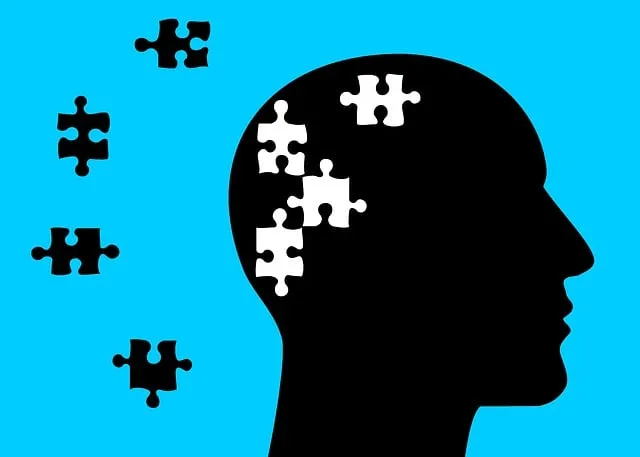Kaiser Permanente's comprehensive Kaiser Permanente mental health coverage introduces the Risk, Resilience, and Mental Health (RFM) approach, focusing on vulnerability identification and emotional intelligence to manage stress. This strategy, particularly through Golden mental health services, equips individuals with tailored coping strategies and crisis intervention guidance for proactive challenge navigation, boosting resilience. The organization's commitment has improved accessibility of mental health coverage and fostered open dialogue. Key strategies include personalized exercises integrated into work routines and regular feedback mechanisms, while challenges like diverse needs and stigma require tailored interventions. Success is measured through participant feedback, mental health indicators, and habit adoption rates, as seen in their Golden Mental Wellness Coaching Programs.
“Resilience is a vital asset in today’s fast-paced world, and organizations like Kaiser Permanente are leading the way in promoting mental well-being through RFM (Resilience, Flexibility, and Mastery) exercises. This article explores how RFM can build resilience, drawing insights from Kaiser Permanente’s successful mental health coverage initiatives. We’ll guide you through implementing these exercises, offering golden rules and strategies to overcome challenges. Additionally, we’ll delve into measuring success, ensuring your RFM program yields positive outcomes.”
- Understanding RFM and Its Role in Resilience Building
- The Impact of Kaiser Permanente's Mental Health Coverage
- Golden Rules for Implementing Resilience Exercises
- Strategies to Overcome Common Challenges During Implementation
- Measuring Success: Evaluating the Effectiveness of RFM Programs
Understanding RFM and Its Role in Resilience Building

Resilience is a vital asset when navigating life’s challenges, and Kaiser Permanente mental health coverage offers valuable resources to support individuals in building this strength. RFM, or Risk, Resilience, and Mental Health Framework, is a structured approach that focuses on identifying vulnerabilities and fostering resilience. This framework is designed to empower individuals, especially those with access to Golden mental health services, to manage stress, anxiety, and potential crises effectively.
By understanding one’s emotional intelligence and employing various stress reduction methods, RFM enables people to develop coping strategies tailored to their unique needs. Crisis intervention guidance, an integral part of this process, equips individuals with the tools to recognize early warning signs and respond appropriately during challenging times. This proactive approach to mental well-being can significantly enhance overall resilience, ensuring individuals are better equipped to handle life’s curveballs.
The Impact of Kaiser Permanente's Mental Health Coverage

Kaiser Permanente’s commitment to mental health coverage has significantly impacted the accessibility and availability of essential services. Their comprehensive plan includes a range of resources, from counseling sessions to specialized programs, ensuring members receive the support they need for their mental well-being. This golden opportunity has revolutionized the way individuals approach and manage their mental health, fostering a culture of open dialogue and care.
The implementation of structured Mental Health Education Programs designed specifically for Kaiser Permanente’s network of professionals has been pivotal. These programs not only educate but also empower healthcare providers to offer effective Conflict Resolution Techniques, enhancing patient interactions and outcomes. Additionally, Risk Management Planning for Mental Health Professionals is given due attention, ensuring practitioners are equipped to handle various challenges while prioritizing patient safety and confidentiality.
Golden Rules for Implementing Resilience Exercises

Implementing resilience exercises within an organization requires adherence to certain golden rules for optimal effectiveness. First and foremost, tailor activities to suit diverse employee needs and preferences. This personalized approach ensures engagement and fosters a sense of ownership among participants. Incorporate regular feedback mechanisms to gauge progress and adjust programs accordingly. By doing so, exercises remain relevant and aligned with the evolving mental health landscape, such as that offered by Kaiser Permanente’s comprehensive mental health coverage.
Additionally, integrate these resilience-building sessions seamlessly into existing work routines. Consider hosting Stress Management Workshops or producing a Mental Wellness Podcast Series to provide ongoing support. Such consistent initiatives contribute to cultivating a culture of mental wellness within the organization. Remember, resilience is not just about handling stress; it’s about thriving despite challenges, an aspect crucial for maintaining a motivated and productive workforce.
Strategies to Overcome Common Challenges During Implementation

Implementing resilience-building exercises (RFM) can be a transformative process, but it’s not without its challenges. Organizations like Kaiser Permanente, recognizing the value of mental wellness, often face hurdles when introducing such initiatives. One significant challenge is ensuring widespread adoption and engagement, especially in diverse populations with varying levels of mental health coverage and awareness. Overcoming this requires tailored strategies that cater to different needs and preferences. For instance, integrating RFM into existing healthcare systems, like Kaiser’s, can make it more accessible, fostering a culture of open conversation around mental wellness.
Another common challenge is the lack of trained facilitators. Addressing this involves developing comprehensive Crisis Intervention Guidance for staff members, empowering them to lead or support these exercises effectively. Public Awareness Campaigns Development can also play a crucial role in destigmatizing mental health issues and encouraging participation. By combining educational initiatives with engaging activities, organizations can create an inclusive environment where individuals feel comfortable embracing resilience-building practices.
Measuring Success: Evaluating the Effectiveness of RFM Programs

Measuring success is a vital aspect of evaluating the effectiveness of RFM (Resilience and Mental Fitness) programs, especially when considering the impact on individuals’ mental health. At Kaiser Permanente, for instance, their mental health coverage includes comprehensive resilience-building exercises designed to empower members with tools for managing stress and anxiety. This approach goes beyond traditional therapy by incorporating various techniques such as mindfulness, cognitive behavioral therapy (CBT), and emotional healing processes, all tailored to individual needs.
The success of these programs can be gauged through participant feedback, improvements in key mental health indicators, and the development of sustainable coping strategies. For instance, Mental Wellness Coaching Programs focus on enhancing emotional resilience, which leads to better stress management and improved overall well-being. By regularly assessing progress and collecting qualitative data, organizations like Kaiser Permanente ensure that their RFM initiatives are not just providing anxiety relief but also fostering long-term mental wellness. This includes tracking participation rates, satisfaction levels, and the adoption of healthy habits post-program completion.
The implementation of RFM (Resilience, Flexibility, and Mental Health) exercises, as demonstrated by Kaiser Permanente’s successful mental health coverage, offers a powerful approach to building resilience. By adhering to the golden rules outlined in this article and employing effective strategies to overcome challenges, organizations can create impactful programs that enhance employee well-being and foster a culture of adaptability. Measuring success through comprehensive evaluations ensures these initiatives remain focused on delivering tangible results, ultimately contributing to a healthier and more productive workforce.






